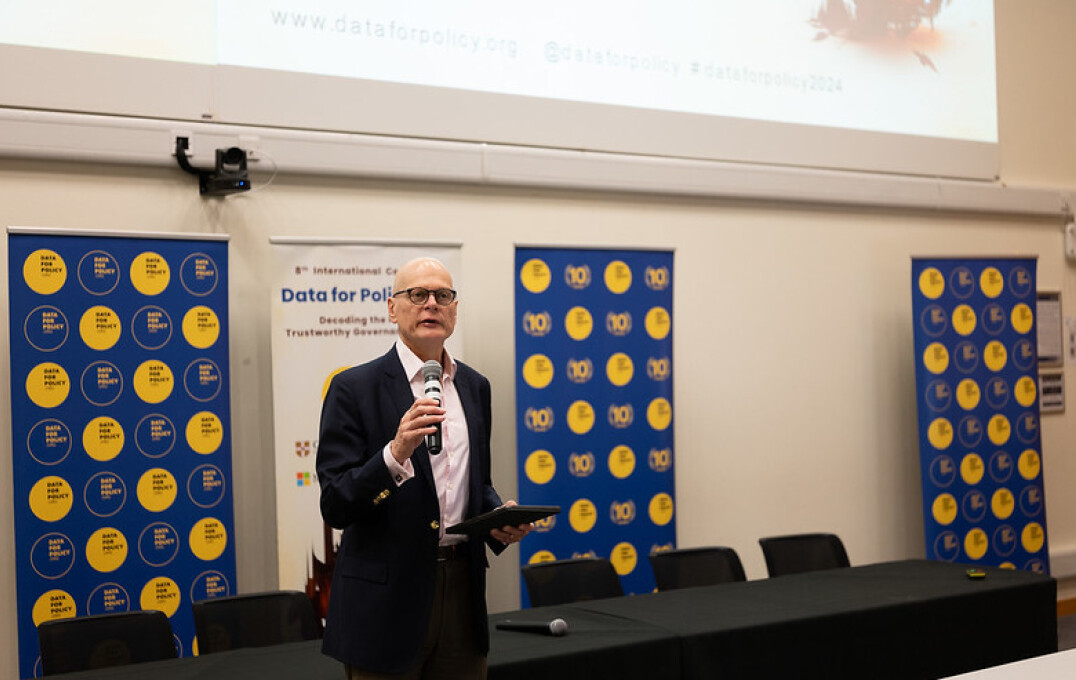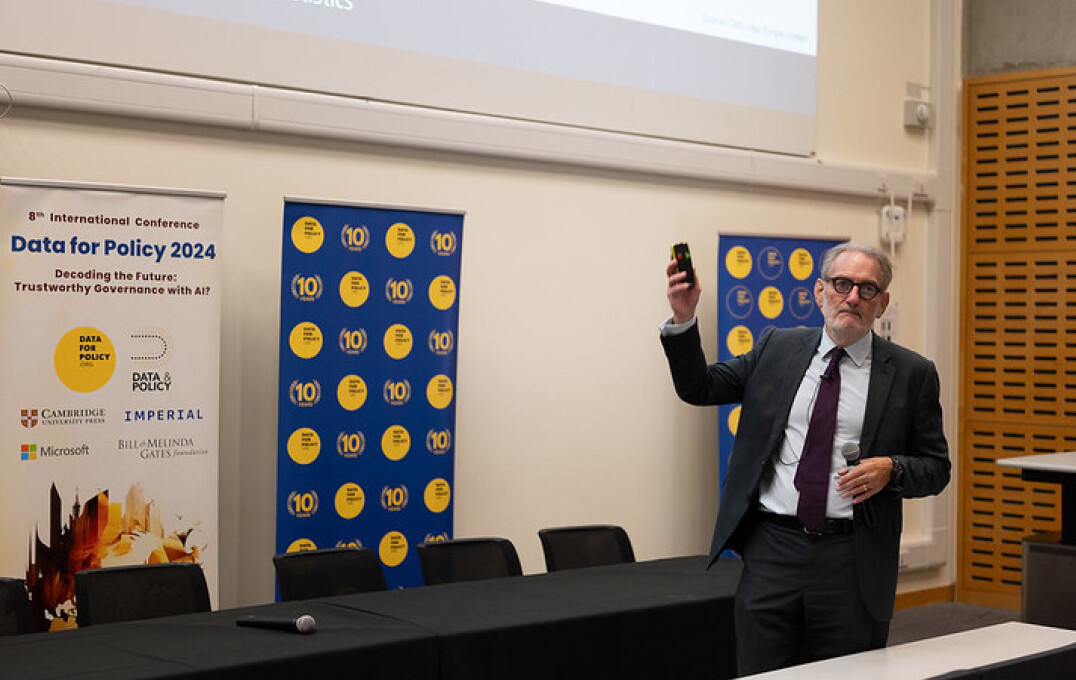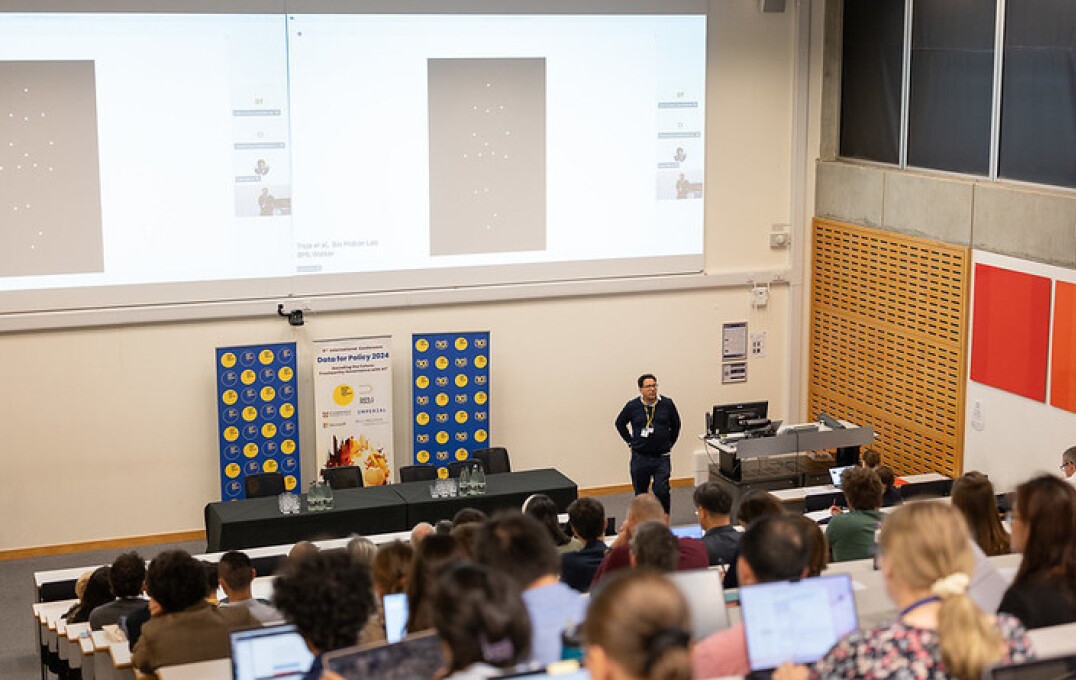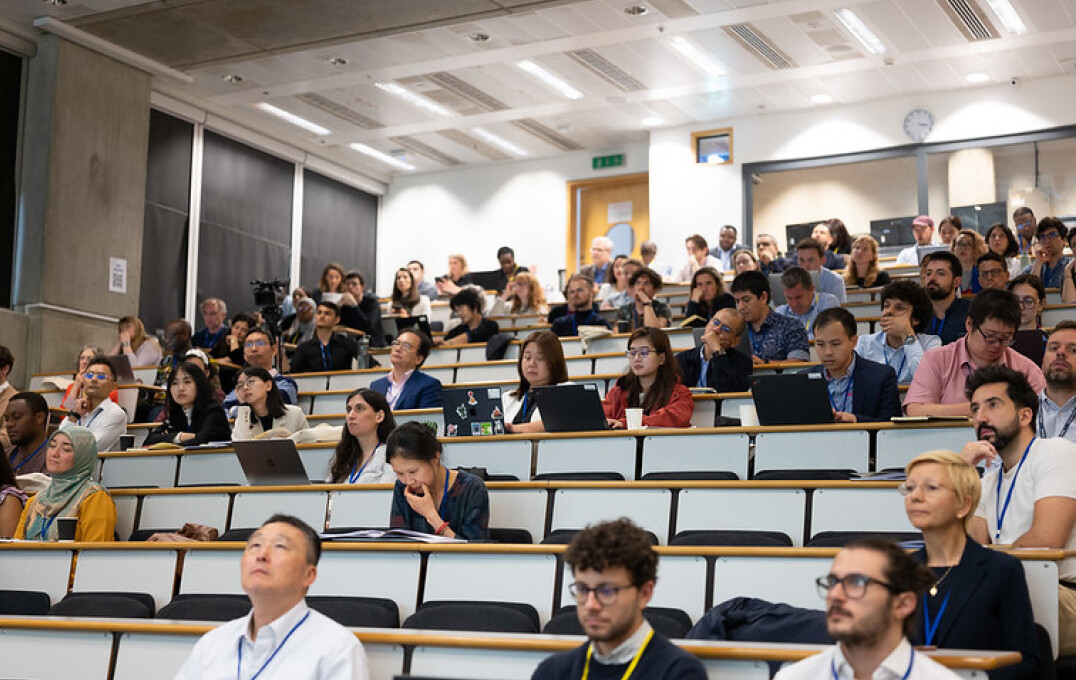Global experts come together at Imperial for discussions on AI and policy
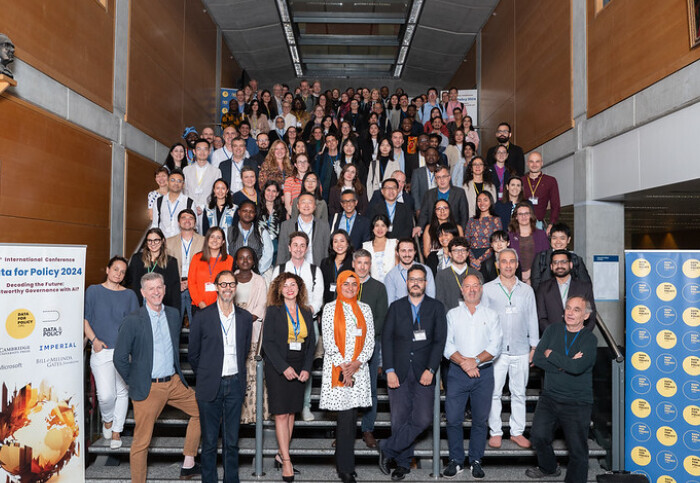
Imperial hosted Data For Policy 2024 Conference, bringing together academics, industry practitioners and policymakers to discuss global AI policy.
Representatives from academia, industry and policy debated how AI can foster trustworthy decision-making and governance, with a focus on AI regulations and potential applications in the public sector.
The 2024 edition of the Data for Policy Conference was held at Imperial on 9-11 July 2024, and ran in partnership with the Imperial Policy Forum and Cambridge University Press.
Data For Policy is a top global community of interest at the interface of data-driven technologies and public policy and governance. Its international conference series each year attracts submissions from key stakeholders from academia, government and industry.
This year’s sessions were selected from the work of over 389 authors from 46 countries and offered a dynamic blend of peer-reviewed expert contributions and thought-provoking debates, drawing insights into the operational and technical paradigms of human-machine collaboration in decision-making and governance.
The opening session included remarks by Chair and Director at Data for Policy Zeynep Engin, PhD, Imperial Provost Professor Ian Walmsley, UK National Statistician Professor Sir Ian Diamond and Director of Imperial’s Data Science Institute, Dr Mark Kennedy.
Dr Kennedy said: "It was exciting to see people from all over the world getting together to talk about Data for Policy. For me, the big takeaway was seeing the community that has coalesced around the data challenges of governing not only with AI as a tool, but also with a lot of AI now being used in the world — all around the world.”
Day One’s Keynote was given by Dr Jennifer Prendki from Google Deepmind who talked about the challenges of legislating AI. She emphasised that AI research is often conducted with limited visible infrastructure and without explicit coordination – often the inner workings of an AI system may be kept secret.
Prendki told attendees that her golden rule when it comes to AI policies is “act pessimistic to identify risks and balance them with opportunities.” Day Two began with a Keynote from Imperial’s Professor Aldo Faisal who spoke about high-stake decisions in AI for medical treatment. The conference saw speakers from a range of backgrounds, discussing AI applications from their various domains, from healthcare to tackling environmental issues and what this means for AI governance.
Day Two began with a Keynote from Imperial’s Professor Aldo Faisal who spoke about high-stake decisions in AI for medical treatment. The conference saw speakers from a range of backgrounds, discussing AI applications from their various domains, from healthcare to tackling environmental issues and what this means for AI governance.
Attendees heard from a second keynote speaker later in the afternoon – Lord Holmes of Richmond from the House of Lords who spoke about ‘Legislating for Ethical AI: the AI Regulation Bill’. He emphasised that better policy outcomes happen with better data.
On Day 3 the conference was bought to a conclusion through highlighting the full spectrum of challenges and opportunities of AI. This included sessions on using technology to detect illegal content and assessing the robustness of modern data privacy mechanisms (led by Imperial’s Dr Yves-Alexandre de Montjoye, Head of the Computational Privacy Group at the Data Science Institute), and also a final Plenary session on ‘harnessing AI’s potential and navigating its risks for a better world.’
There was a lot to unpack in the conference but inclusion and bringing a truly global perspective was emphasised from the beginning. The conference made a particular effort to showcase ‘Developing Country Perspectives’ which saw talks on the political economy in South and Southeast Asia and knowledge, attitudes and readiness for AI in government services in Africa to name just a few. There was much encouraging talk on hosting a future Data for Policy Conference in Africa.
The conference concluded with a discussion from the Conference Chairs, Imperial Data Science Institute Directors Dr Mark Kennedy and Dr Rossella Arcucci, Founder of Data for Policy Dr Zeynep Engin and Jon Crowcroft from the University of Cambridge and The Alan Turing Institute.
Article text (excluding photos or graphics) © Imperial College London.
Photos and graphics subject to third party copyright used with permission or © Imperial College London.
Reporter
Mari da Veiga
Communications Division
Gemma Ralton
Faculty of Engineering
